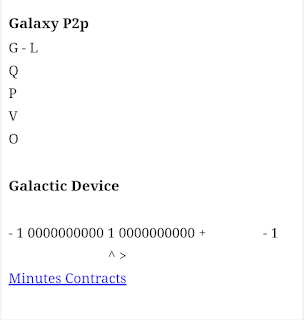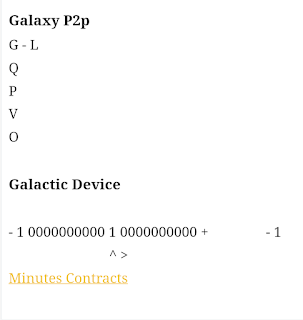Wireless Power Device
Wireless power transfer device involves designing and assembling the various components into a functional system.
Here’s a step-by-step guide to building a simple wireless power transfer device, including a detailed schematic and practical instructions.
1. Components Needed
**Transmitter Side:**
- **555 Timer IC** (e.g., NE555)
- **Resistors**: R1 (10 kΩ), R2 (100 kΩ)
- **Capacitors**: C1 (100 nF), C2 (0.01 µF)
- **Transmitter Coil**: Wire, approximately 10-20 turns on a circular form
- Power Supply: 5v - 9V battery or DC power supply
**Receiver Side:**
- **Receiver Coil**: Same design as the transmitter coil
- **Bridge Rectifier**: Four diodes (e.g., 1N4007)
- **Capacitors**: Filter capacitors (e.g., 100 µF)
- **Voltage Regulator** (e.g., LM7805)
- **Load**: Device or resistor to test power output
### **2. Circuit Design**
#### **Transmitter Circuit**
**555 Timer Oscillator Configuration:**
1. **Connect Components**:
- **Pin 1 (GND)**: Connect to the ground of the power supply.
- **Pin 8 (VCC)**: Connect to the positive terminal of the power supply (+9V).
- **Pin 4 (RESET)**: Connect to VCC to disable the reset function.
- **Pin 5 (CTRL)**: Connect a 0.01 µF capacitor to ground to stabilize the control voltage.
- **Pin 2 (TRIG)** and **Pin 6 (THRS)**: Connect these together.
- **Pin 7 (DISCH)**: Connect to the junction of R1 and R2.
- **Pin 3 (OUT)**: Connect to one end of the transmitter coil.
- **R1**: Connect between VCC and Pin 7.
- **R2**: Connect between Pin 7 and Pin 6.
- **C1**: Connect between Pin 6 and ground.
Schematic Diagram:
+Vcc (+9V)
|
[R1 (10 kΩ)]
|
Pin 8 (VCC) -- Pin 7 (DISCH)
| |
Pin 4 (RESET)|
| |
Pin 6 (THRS) -- [R2 (100 kΩ)]
| |
[C1 (100 nF)] |
| |
Pin 2 (TRIG) |
| |
Pin 3 (OUT) --- To Transmitter Coil
|
GND
Transmitter Coil Construction:
- Wind approximately 10-20 turns of insulated copper wire around a circular form (e.g., 5-10 cm diameter).
Receiver Circuit
1. **Receiver Coil**: Place in alignment with the transmitter coil.
2. **Bridge Rectifier**:
- Connect the output terminals of the receiver coil to the AC input terminals of the bridge rectifier.
- Connect the + and - output terminals of the rectifier to filter capacitors.
3. **Filter Capacitors**:
- Connect a 100 µF capacitor across the DC output terminals of the bridge rectifier.
4. **Voltage Regulator :
- **LM7805 :
- **Pin 1 (Input) : Connect to the positive terminal of the filtered DC.
- **Pin 2 (Ground) : Connect to the ground.
- **Pin 3 (Output) : Connect to the load.
- **Input Capacitor : 0.33 µF to 1 µF between Input and Ground.
- **Output Capacitor : 0.1 µF to 10 µF between Output and Ground.
**Schematic Diagram:**
```
Receiver Coil
|
|
[Bridge Rectifier]
+ | -
| |
[Filter Capacitors (100 µF)]
| |
+ |
GND +Vdc
|
[LM7805 Voltage Regulator]
| |
Input Output --- To Load
| |
[Capacitors]
|
GND
3. Assembly Instructions
1. Assemble the Transmitter Circuit:
- Connect the 555 Timer IC according to the schematic.
- Attach the transmitter coil to Pin 3 (OUT).
2. Assemble the Receiver Circuit :
- Place the receiver coil near the transmitter coil.
- Connect the receiver coil to the bridge rectifier.
- Attach filter capacitors to smooth the rectified output.
- Connect the output of the rectifier to the LM7805 voltage regulator.
- Attach the load to the output of the voltage regulator.
3. Testing :
- Power on the transmitter circuit.
- Verify the output voltage at the load in the receiver circuit.
- Adjust the distance and alignment between the transmitter and receiver coils for optimal performance.
4. Example Setup
Transmitter Side Setup :
- 555 Timer IC : Assembled on a breadboard with components as per the schematic.
- Transmitter Coil : Connected to Pin 3 of the 555 Timer IC.
Receiver Side Setup :
- Receiver Coil : Positioned near the transmitter coil.
- Bridge Rectifier : Connected to the receiver coil.
- Filter Capacitors : Attached to the output of the rectifier.
- LM7805 Regulator : Connected to the filtered output.
- Load : Connected to the regulator’s output.
By following these instructions, you will build a functional wireless power transfer system. You can modify component values and coil designs to optimize performance for your specific needs.










0 Comments